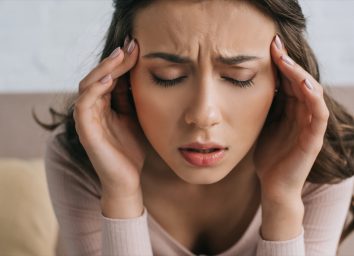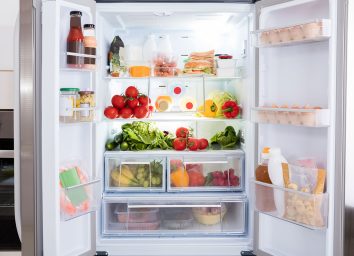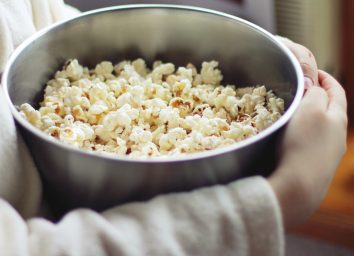12 Signs You're Not Eating Enough and It's Hurting Your Health

So you want to lose weight. You've overhauled your diet. Buffed up your hours at the gym (or started going to the gym). Cut back or even gave up alcohol. While these are all steps in the right direction, there is a possibility you've taken them too far.
Without proper nutritional guidance or oversight, many people will drastically slash calories consumed and dramatically increase calories burned to lose weight fast. As a result, you could hurt your long-term health by not eating enough, which—somewhat ironically—may also end up stifling your weight loss progress.
How can you tell you're not eating enough and what is enough, anyway?
How many calories do you need to eat a day?
Indeed, there's no hard-and-fast rule for how many calories a day is "unsafe" but there are some important guidelines to keep in mind: "The number of calories you should eat per day varies per person. It is usually based on your BMR or the energy (calories) needed for your body to perform normal systemic functions like nerve signaling or breathing," says Sadé Meeks, MS, RD Freedom Foods Dietitian.
To that point, Laura Acosta, MS, RDN, LDN, Registered Dietitian and Lecturer in Dietetics at the University of Florida, elaborates, "Conventional wisdom is that the average woman shouldn't eat fewer than 1,200 calories per day and the average man shouldn't eat fewer than 1,500."
"These levels, though, are likely creating a calorie deficit, so they're not really 'sustainable,'" she adds. Which is to say that maintaining a 1,200-calorie diet in the long-term simply isn't going to be possible.
How to determine how many calories is enough to eat a day.
"Some dietitians use formulas to calculate someone's BMR along with an activity factor to estimate calorie needs," Acosta explains.
Acosta adds that there's another approach that doesn't rely on calories: "Without all the fancy calculations, many people also practice intuitive eating, which involves a more connected approach to listening and obeying your body's hunger and fullness cues."
The safe amount of calories to cut per day for weight loss.
"Generally, it is recommended to reduce daily calorie intake by 500 calories to promote weight loss; however, this rule would not apply to someone who is already undereating," Acosta tells us.
When in doubt, talk to your doctor or nutritionist to help you calculate a caloric range that is ideal for you. Meeks shares how a highly restricted caloric intake can slow your metabolism, promote muscle loss, and throw your hormones out of whack. But trying to get by on so few calories can also manifest in other not-so-good ways. Exhaustion? Check. Crazy stressed? You betcha.
Below, check out all the telltale signs you're not eating enough and it's sabotaging your health.
Exhaustion
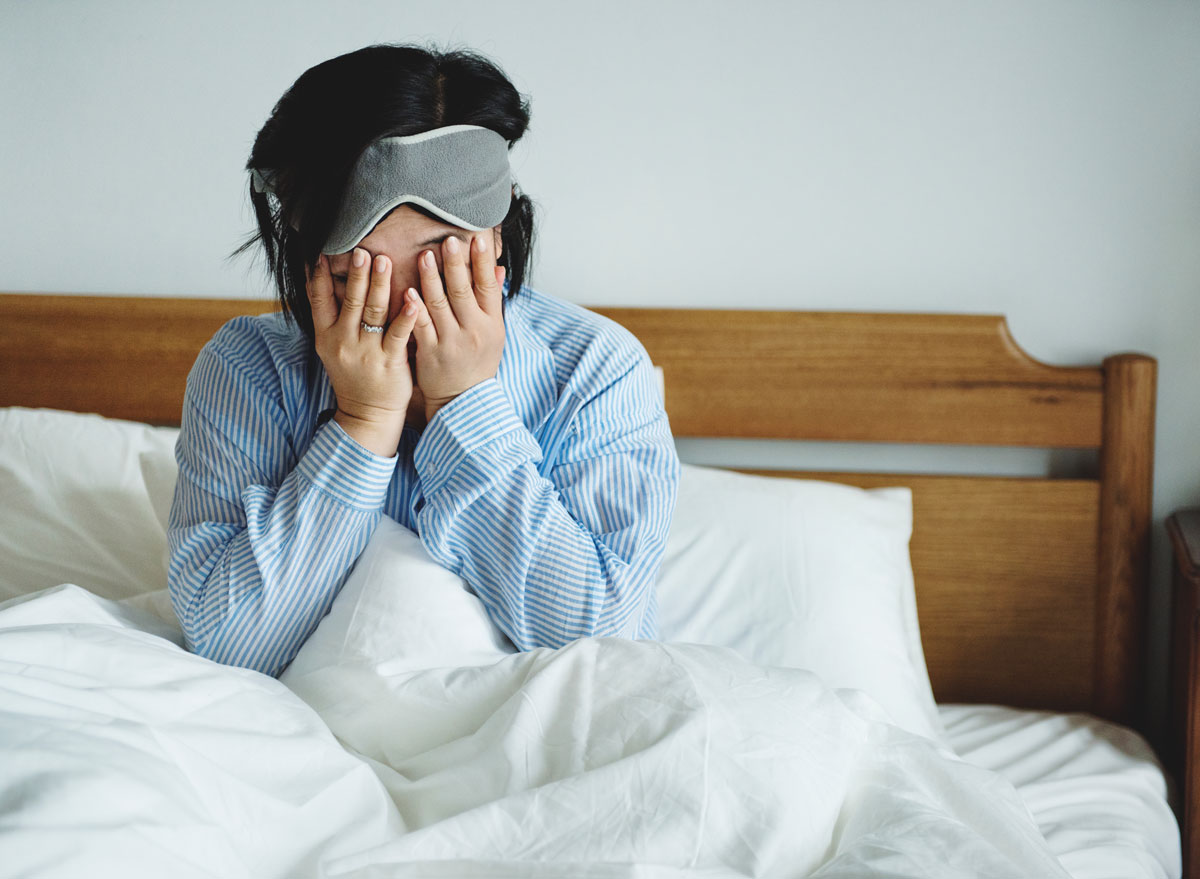
Fatigue will inevitably set in when you're consuming too few calories. "You will feel tired and sluggish, and performing everyday activities will feel more difficult. A lack of energy may be especially apparent during workouts," says Acosta. Worth noting: Try as you may, no amount of caffeine is going to replace the natural energy-boosting prowess of certain foods and sticking to a balanced, healthy diet.
Your metabolism slows down

"When you cut back on calories, your body naturally adapts to having a slower metabolism because the energy needed for digesting and metabolizing food decreases now that food is being restricted," Meeks explains. And while it may sound like a good thing that your body will adapt to consuming fewer calories, Meeks tells us you could actually be hurting your health long-term with this technique. "Research shows that continuous diet restriction can lead to prolonged slow metabolism even after ending the diet. This might explain why many restrictive, yo-yo dieters regain weight quickly."
You lose muscle

Forget about all those gains at the gym if you've dramatically reduced your daily calories. "Without enough protein to feed or maintain the muscles, one can also experience muscle loss. Loss of muscle disrupts the metabolic rate, making it slower. Simply stated, less muscle equals a slower metabolism. In extreme, prolonged, calorie restrictive diets the body can also kick into 'starvation mode'. This is where your body's metabolism slows down and holds onto fat stores instead of burning them for energy," says Meeks.
Your beauty fades
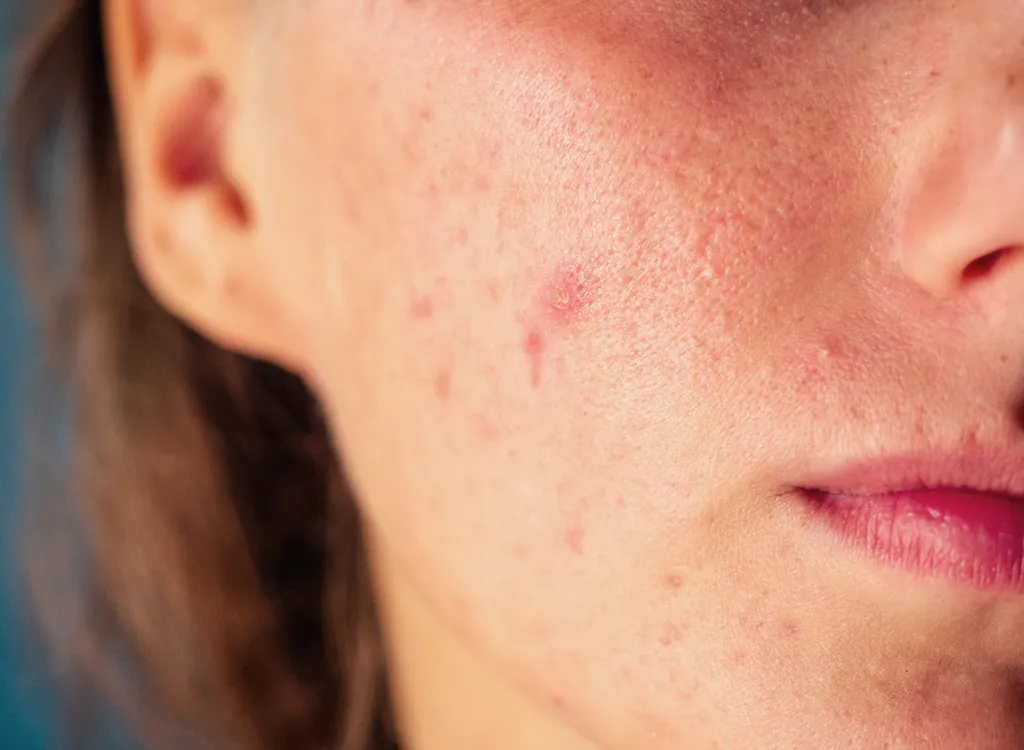
But really, though. Zits, acne, thinning hair, fingernails that easily break, are all part of the game when you're not getting the proper number of calories for your body. "Your skin, hair, nails and/or eyes [will] seem dull or brittle," when you're not getting enough calories, says Dr. Keith Kantor, CEO of NAMED, who holds a PhD in nutritional science and a doctorate in naturopathic medicine. "We also need a certain amount of micronutrients that are [in] vitamins and minerals to keep up with our body and living cells growing, when we have a nutrient deficiency our eyes appear less bright and our hair does not shine as much."
Women may miss several periods
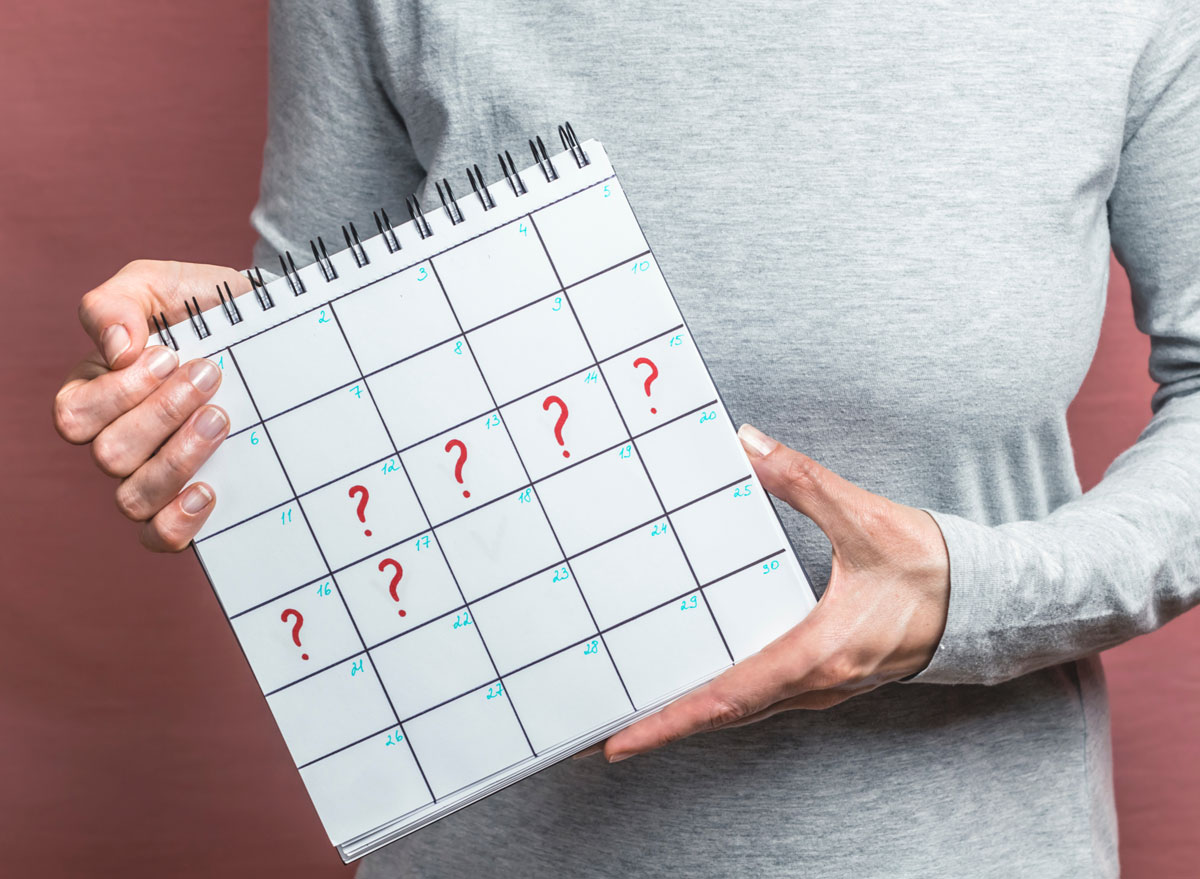
For women, if Aunt Flow leaves the building for a few months, pay careful attention to your diet. "Absence of a menstrual cycle for three or more consecutive months, also known as secondary amenorrhea, this is often a common sign that the body is not receiving enough calories to support both basic metabolic needs AND the needs of one's workout routine," advises Rachel Fine, MS, RDN, Registered Dietitian and owner of To The Pointe Nutrition a nutrition counseling firm in New York City.
Your hormones get screwy

Trust us when we say you don't want to get to this state. "Several studies have also demonstrated that restrictive diets may increase levels of cortisol. Cortisol is commonly referred to as the 'stress' hormone or 'survival hormone' and is usually associated with weight gain," comments Meeks. "When cortisol levels are high it can disrupt your hormonal balance. For instance, high cortisol is associated with decreased thyroid hormone. Reduced thyroid hormone leads to a slower metabolism."
You can't make it through a workout

Struggling at the gym? Listen up: "[Another sign of caloric deficiency is the] inability to get through a realistic workout: specifically, when the body is receiving too few carbs, it often turns to other sources for energy such as muscle and fat," says Fine. "Though it may sound appetizing to cut carbs as a means of promoting fat burn, this can result in impaired physical performance. Not only will muscle breakdown occur, but carbohydrates are the body's most efficient fuel source, which makes them ideal for times of high-intensity exercise."
Hypoglycemia
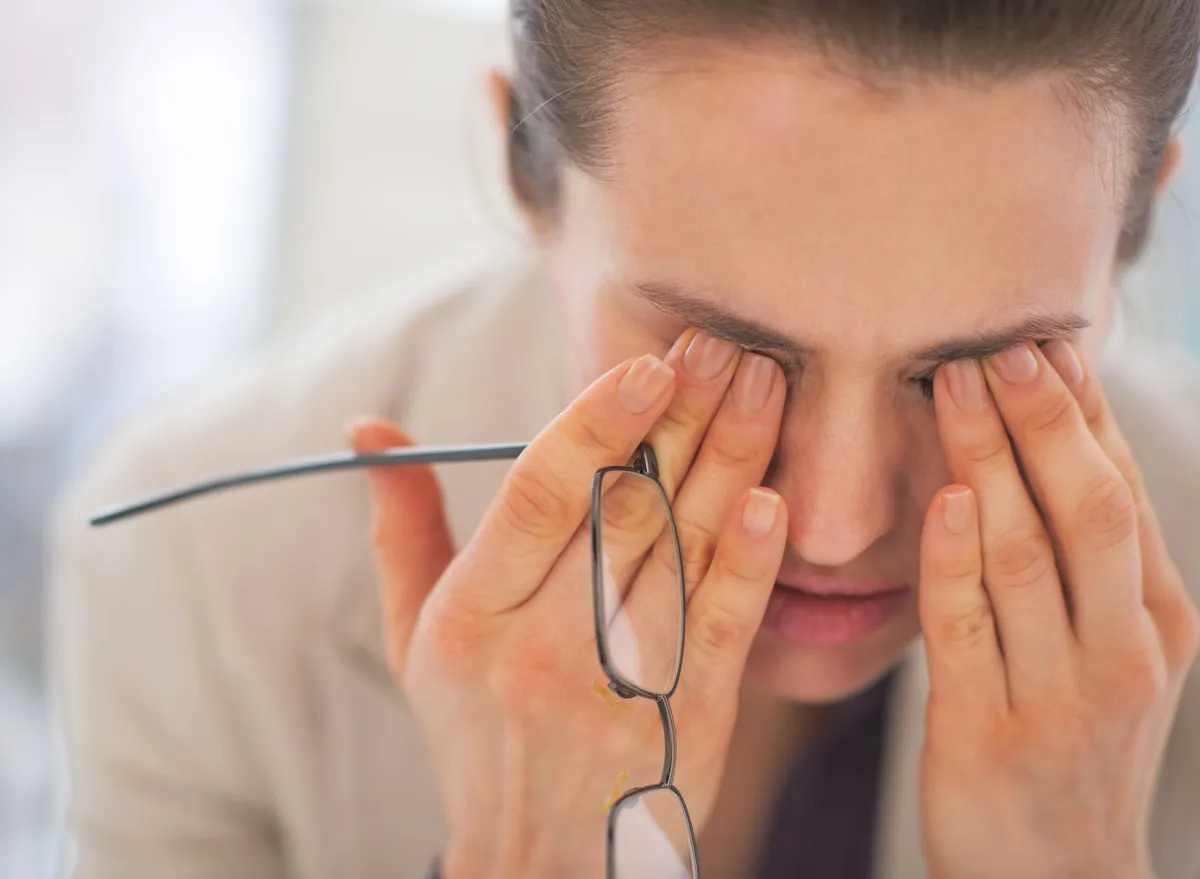
Also known as low blood glucose, this condition could also mean there's another underlying health issue so be sure to see a doctor. "In some cases, undereating can lead to low blood sugar. Symptoms of low blood sugar or hypoglycemia (a blood sugar of <70 mg/dl) include fatigue, shakiness, irritability, and hunger," says Meeks.
Things just feel off

Even if you can't pinpoint why exactly your body doesn't feel right, you intuitively know things just aren't business as usual. Pay attention to subtle and obvious cues alike: "We should feel good every day, full of energy and able to easily complete our daily activities without much struggle. If you are feeling weak, or have brain fog, depression, using the restroom less often, and your energy feels low you may be suffering from a nutrient deficiency and/or hormonal imbalance most likely a result of too few calories," says Dr. Kantor. "Our metabolism can slow down when it is not being fueled properly; consuming [the] optimal amount of nutrients will promote a healthy metabolism that goes along with improved energy and neurological function."
You're totally consumed by thoughts of food

The smell of a croissant is enough to derail your day. Your mind is a steady stream of french fries. You find yourself fantasizing about dinner. "Often times, I find some new clients first come to me with the complaint that they 'can't stop thinking about food.' Obsessively thinking and craving food (either in general or specifically—like craving carbs) could be a sign that you're not getting enough [calories]," notes Fine.
You'll get sick more often than normal

Cough, cough, do we hear? Runny nose? Cold central over here, ladies and gents. "Our immune system needs enough macronutrients from carbohydrates, protein, and fat to repair muscles and replenish them from daily metabolic strains from activity," says Dr.Kantor. "And we can get sick more often because our immune system is not strong enough to fight off common sicknesses."
You can get your gut in trouble
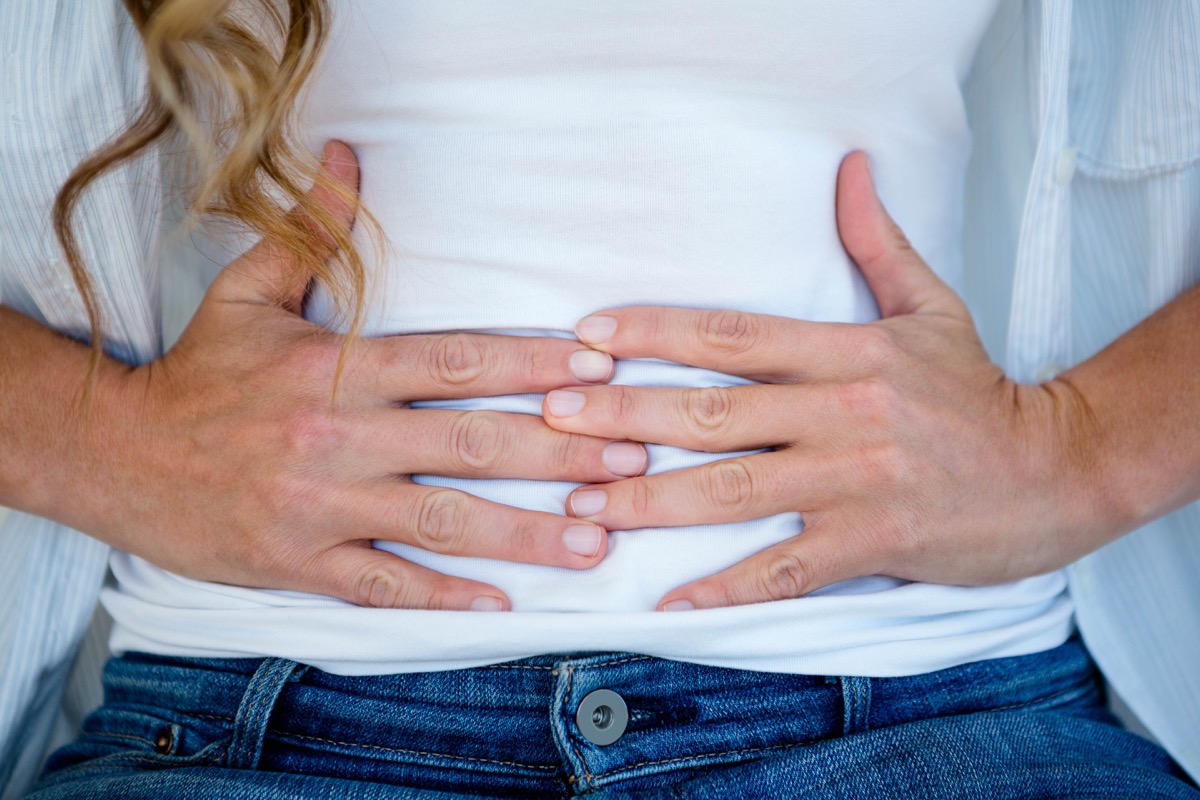
"Calorie restrictive diets are consequently nutrient restrictive diets as well. This can backfire with not only potential nutrient deficiencies, but also gut bug deficiencies, or gut dysbiosis," offers Meeks. "Gut dysbiosis is characterized by an imbalance of good gut bugs (probiotics) in the gut. When we fail to feed our bodies the needed nutrients, we fail to feed our gut bugs the prebiotic fibers that support our gut health." For more on how to heal and nourish your microbiome, find out how important gut health is to your overall health.
